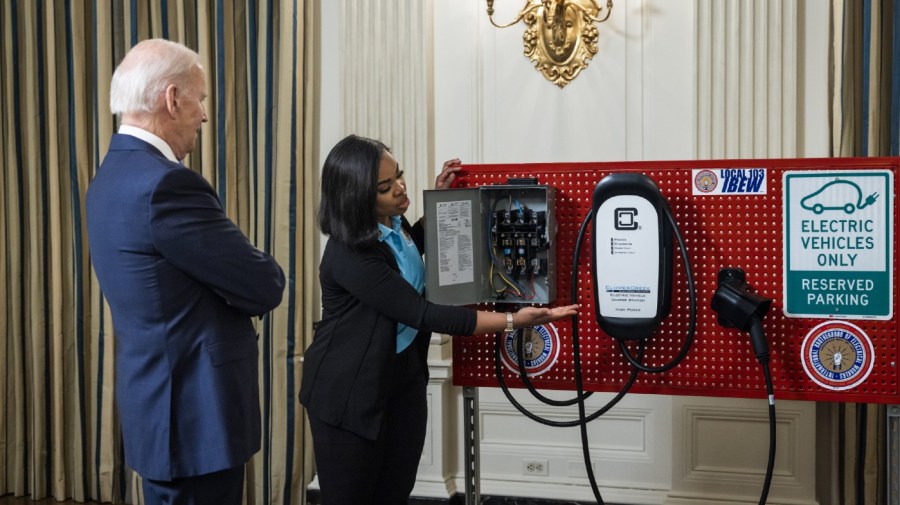
The Biden administration granted leeway for qualifying for electric vehicle (EV) tax credits — allowing some foreign minerals to be used for two extra years.
© Jim Lo Scalzo/EPA/Bloomberg via Getty Images
The rule pertains to provisions in the Inflation Reduction Act that bar vehicles from eligibility if their battery minerals come from China, Russia, Iran and North Korea.
The final rule issued Friday cements a previously proposed two-year carve out for certain minerals whose sources are difficult to trace.
It also expands the provision — adding graphite — a mineral that can make up a significant share of an EV battery and often comes from China.
The move won cheers from the auto industry, which said it will bolster electric vehicle adoption and give companies more time to shore up their supply chains.
But critics, including Sen. Joe Manchin (D-W.Va.), argue that the rule circumvents stipulations in the law meant to reduce reliance on foreign powers like China.
Read more in a full report at TheHill.com.
Welcome to The Hill’s Energy & Environment newsletter, we’re Rachel Frazin  and Zack Budryk — keeping you up to speed on the policies impacting everything from oil and gas to new supply chains.














